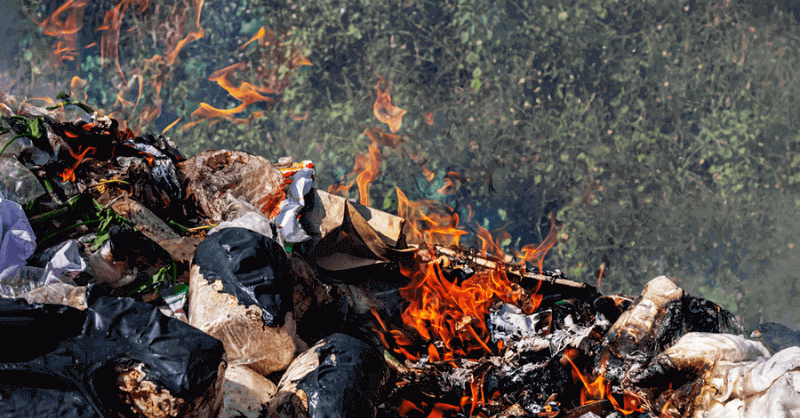Burning rubbish can affect air quality. But there are no specified laws that prohibit burning rubbish. While it’s not illegal to burn waste in the garden, there are some rules in place. These regulations help to avoid fire and smoke hazards. They also make sure burning waste does not bother your neighbours.
Under this Act, it is an offence to dispose of rubbish in any way that may cause pollution to the environment. Or if it causes harm to people’s health, such as by burning it. This means you must not burn waste that can create excessive smoke and fumes. Burning can be a statutory nuisance, and you will be fined accordingly.
For the smoke or fume to count as a statutory nuisance, it must fulfil the following –
- Unreasonably and substantially hinder the use or enjoyment of a premises like home or others.
- Injurious to health or likely to injure health.
If smoke from burning rubbish is recurrent and bothersome to people. This can result in an ‘abatement notice’. Failure to abide by an abatement notice is a criminal offence. As a result, they can be prosecuted via a Magistrates’ Court. Failing to adhere to an abatement notice can lead to a fine of £5,000 imposed on those responsible.
Under section 161A of this Act, you cannot allow smoke from a fire to drift across a nearby road. Heavy smoke on the road can be dangerous for people. You will face a fine if it appears to be a risk to traffic or if it leads to injury.
Suppose there is any damage committed by fire. In that case, the offence is charged as arson with intent or being reckless. Because the life of another would be thereby endangered. As per this Act, if anyone or anything is endangered by fire, the person responsible for the fire can be charged.
Your local authority can help you with more information and advice in detail, regarding burning rubbish in the garden.


![]() 20 minutes
20 minutes


![]() 20 minutes
20 minutes